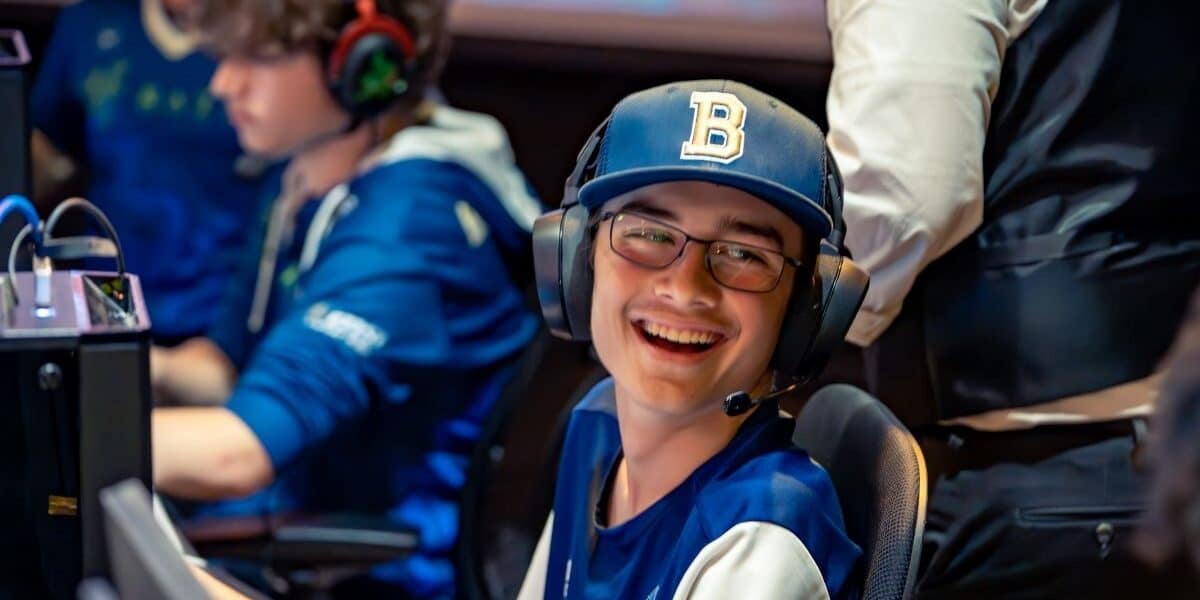Educators today face a daunting challenge — how to keep students engaged, motivated, and present in school. Across the country, teachers and administrators see students struggling with attendance, low grades, behavioral issues, and mental health challenges. Traditional approaches often fall short, and with the rise of digital media and gaming culture, many students are disengaging from conventional classroom settings.
But what if the solution to these challenges was already sitting in students’ homes, embedded in their daily lives, and waiting to be harnessed for educational success? That’s where scholastic gaming comes in — a revolutionary approach to education that meets students where they are and turns their passions into pathways for achievement.
The Rise of Scholastic Esports
Esports, or competitive video gaming, has evolved far beyond an after-school hobby. It’s now a multi-billion-dollar industry with professional leagues, college scholarships, and a thriving job market in game design, broadcasting, marketing, and more. But beyond its economic impact, esports is proving to be a powerful educational tool, particularly for students who struggle in traditional school settings.
How Esports Improves Attendance
One of the most striking benefits of scholastic esports is its impact on attendance. Schools that have adopted esports programs report fewer absences, with students showing up more consistently, a struggle that schools have endured for years.
Why? Because esports provides students with a reason to be there. Many students who struggle with attendance feel disconnected from traditional academics, but esports offers a structured, engaging environment where they feel valued and included. It fosters a sense of belonging, something that many at-risk students lack in school.
For instance, a student who previously skipped class might start coming to school just to participate in esports practice or competitions. That increased attendance often spills over into other areas — students attend their core classes because they don’t want to lose their spot on the team. As we know, the more students attend, the more likely they are to succeed.
Boosting Grades Through Gaming
A common misconception about esports in schools is that it’s just about playing video games. In reality, successful esports programs are built on academic accountability. Many schools require students to maintain a minimum GPA to participate, just like traditional athletics. This motivates students to improve their grades and stay engaged in coursework.
The structured esports curriculum reinforces this by integrating subjects like math, science, and language arts into gaming-related lessons. Students learn about probability and statistics through game mechanics, communication skills through team coordination, and even STEM concepts like coding and game design. Suddenly, learning isn’t just a requirement — it’s directly tied to something they love.
Take, for example, a student struggling in math. When they see how probability affects game outcomes or how geometry plays a role in movement and positioning, those abstract concepts become real and applicable. This practical, hands-on learning approach often leads to improved academic performance across multiple subjects.
Addressing Behavioral Issues Through Teamwork
Esports also has a transformative impact on student behavior. Many students who struggle with traditional classroom settings due to ADHD, anxiety, or behavioral challenges find a structured yet flexible environment in esports where they can thrive.
Unlike traditional sports, where physical ability often dictates participation, esports is inclusive of all students, regardless of physical ability, gender, or background. This inclusivity helps students who may feel alienated in other areas of school life find a place to belong.
Additionally, esports requires critical thinking, teamwork, and communication — skills that transfer into classroom behavior. Students who may have been disruptive in class often develop better self-regulation through esports, as they must cooperate, strategize, and work under pressure. These skills don’t just help them in gaming; they translate into better classroom participation, problem-solving abilities, and social interactions.
Mental Health Benefits
Perhaps one of the most significant yet overlooked benefits of esports in education is its positive impact on mental health.
Today’s students face unprecedented levels of stress, anxiety, and depression. Many struggle with feelings of isolation or lack of purpose. Esports offers a structured, supportive community where students can connect, communicate, and build friendships in a way that feels natural to them.
Esports curricula with an embedded mental health focus, provide students with strategies to manage stress, set healthy gaming habits, and recognize when they or their peers need help.
These lessons are crucial in teaching students how to balance gaming with mental wellness, ensuring that esports remains a positive, enriching experience rather than a source of stress.
Furthermore, esports fosters resilience. Losing a match can be frustrating, but in an educational esports setting, students learn how to analyze mistakes, improve performance, and work toward success — valuable skills that help them navigate challenges in school and life.
Building Career Pathways
Beyond academic and personal growth, esports is also a direct pipeline to future careers. While professional gaming is the most visible career path, the esports industry offers a vast range of job opportunities, including:
- Game design and development
- Broadcasting and shoutcasting
- Marketing and event management
- IT and cybersecurity
- Coaching and team management
Through scholastic gaming, students can develop real-world skills, build portfolios, and gain hands-on experience in these fields while still in school. With the increasing demand for digital and technology-based careers, esports education is equipping students with 21st-century skills that will serve them well beyond graduation.
The Future of Esports in Schools
The rapid adoption of scholastic esports is proving that gaming is more than just entertainment — it’s an educational revolution. Schools implementing esports programs are seeing measurable improvements in student engagement, academic success, and overall well-being.
As more educators recognize the benefits, the movement is gaining momentum, with state departments of education, national organizations, and even universities backing esports initiatives. Schools that embrace esports aren’t just keeping up with the future of education — they’re leading the way in student-centered learning.
For educators and administrators looking to improve student attendance, grades, behavior, and mental health, the answer may not be found in traditional interventions, but in a controller, keyboard, and headset.
Esports isn’t just the future of gaming — it’s the future of education.
Alex Hirbe is education integration manager for Gaming Concepts, an award-winning, research-backed scholastic esports curriculum designed to engage students through gaming while teaching essential life skills, www.GamingConcepts.gg.






